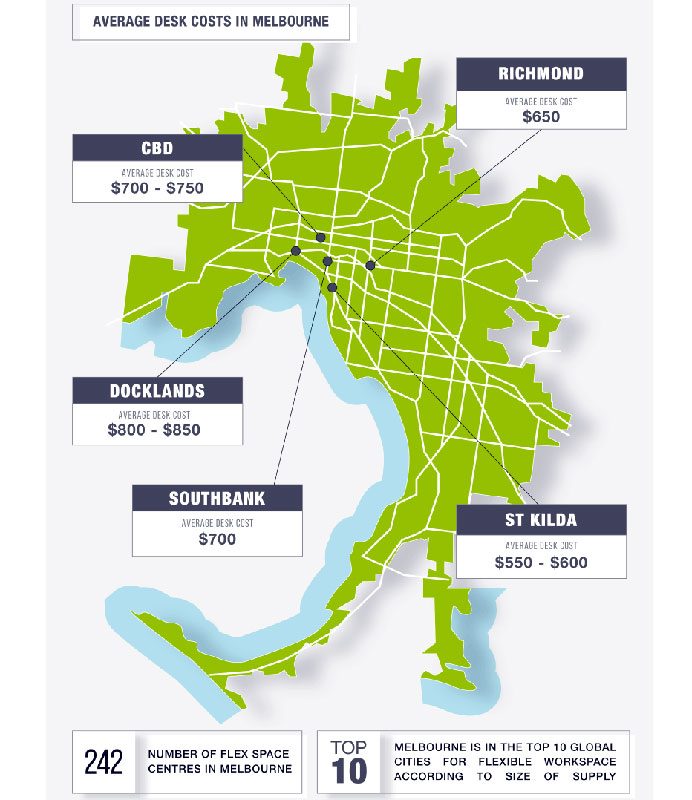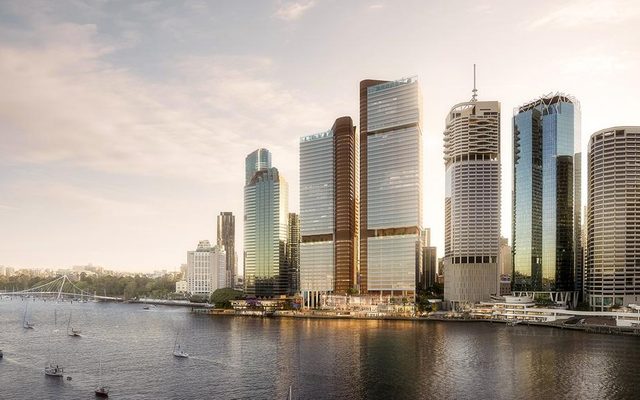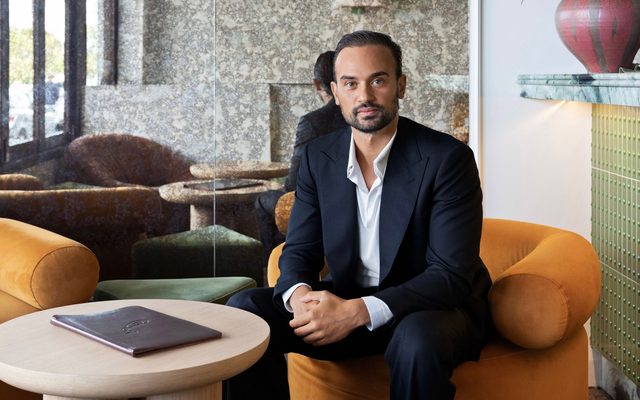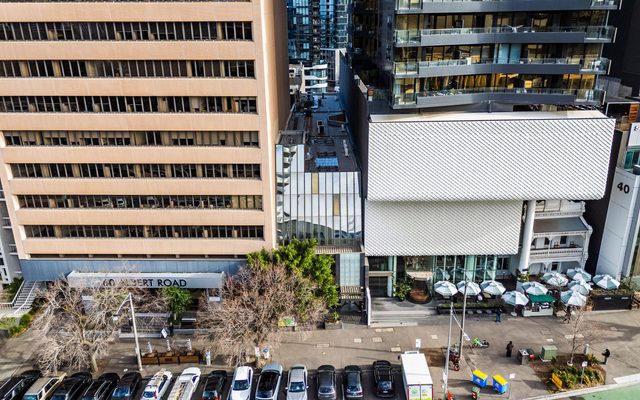This article is from the Australian Property Journal archive
MELBOURNE has emerged as the third largest market for coworking and flexible workspace globally, alongside Tokyo, Paris, New York and London.
According to a recent report by Instant Offices, more businesses are swapping the constraints of conventional office space for coworking and serviced options.
Overall demand across cities like Melbourne, Sydney and Brisbane shows no sign of letting up. Last year the market saw double-digit growth, with flexible options now representing up to 5% of overall space.
But Melbourne has emerged the leader in Australia, on a similar growth trajectory to New York. Both corporates and SMEs looking for flex options in prime areas has seen demand outstrip supply last year, and enquiries for flex space rose by 19% against average supply at 16%.
A TimeOut Index survey also revealed Melbourne ranks second as both the world’s most creative city and Startup Genome lists Melbourne as one of the fastest growing and predict the city will be among the top 30 global startup ecosystems within the next five years, alongside Moscow and Jakarta.
This is due to the diverse business community, a large talent pool and a strong relationship-driven culture, Melbourne is a highly sought-after international destination of creativity, innovation and opportunity.
Average Desk Cost in Melbourne
| Area | Average Desk Cost |
| CBD | $700-750 |
| Docklands | $800-850 |
| Richmond | $650 |
| Southbank | $700 |
| St Kilda | $550-600 |
Demand from flexible workspace providers are spreading across Melbourne. This week International Workplace Group (IWG) committed to Aus Finance Group’s new office building at 71 Gipps St Collingwood.
IWG will launch its co-working brand Spaces, leasing 3,495 sqm of the 9,000 sqm building which will have a project value of $70.9 million.
A Cushman & Wakefield report released earlier this month said the co-working sector has at least 10 more years of rapid growth.
Co-working office space currently accounts for over 470,000 sqm across Sydney, Melbourne and Brisbane office markets. Cushman & Wakefield estimates that by 2020, co-working space is expected to equate to 141,887 sqm in the Sydney CBD or 2.8% of the overall office market, 122,462 sqm in the Melbourne CBD, or 2.7%, and 60,900 sqm in the Brisbane CBD, also at 2.7% of the broader office market.
While operators are expanding their tenant base to larger clients, the majority of tenants occupy smaller sub-300 sqm tenancies. Cushman & Wakefield analysis show co-working space occupies 140,000 sqm in Sydney, suggesting coverage of between 25% and 30% of Sydney’s smaller tenancy market.
The co-working space is expanding at 25,000 per annum, and could soak up over 60% of sub-300 sqm tenancies introduced to the market each year.
At this rate, co-working space in this market segment is not expected to reach a saturation point for at least 10 years.




